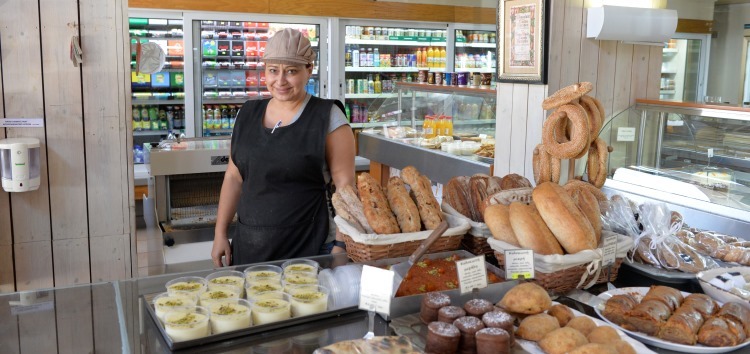How the EBRD supports small business in Cyprus
We’ve already supported more than 60 SMEs across the island
By Gavriella Kantouna and Bilgehan Kayalar
When Cyprus became an EBRD country of operations in 2014, the Advice for Small Businesses team quickly began providing our know-how to local enterprises with the support of the EBRD Shareholder Special Fund.
We recognised from the start that we had to move quickly because the EBRD has a limited mandate in terms of time and we wanted to maximise our impact while Cyprus remained a country of operations.
We launched our advisory services in 2015, aimed at helping SMEs from both communities in the island grow and adapt to the demands of a modern market economy. Since then, we have provided support to more than 60 enterprises across Cyprus. They have accessed a wide range of consulting services, from strategy and marketing to export promotion and energy efficiency.
Support to SMEs remains an important part of the EBRD’s strategy in Cyprus as the island needs to reduce its overreliance on financial services, real estate and tourism or upgrade its activities in these sectors to remain competitive.
As local SMEs tend to be overleveraged, they have to focus on cutting costs and increasing their revenues, areas where consultants can play a vital role.
Setting standards and promoting exports
Since March 2016, operations in the Turkish Cypriot community have been funded by the European Union which provided €1.65 million for a four-year comprehensive programme to enhance SME competitiveness through improving access to business advice and access to finance.
The first company from the Turkish Cypriot community to access quality management advice with the help of the EBRD was Çirali Plastik, a leading manufacturer of polythene packaging that has been selling its products across Cyprus through the Green Line.
However, packaging intended to come into contact with food for human consumption need, according to EU directives, to comply with the EN 15593 “hygiene management in packaging manufacturing” standard.
With our support, the company was able to work with a local consultant in order to achieve the standard, and was able to meet the requirements to supply its products in the EU-regulated parts of the country, setting a base to start exporting to other European markets
Dagli Trading, an importer of ambient foods and cleaning products located in Famagusta, is another SME to have benefited from the EBRD’s Advice for Small Businesses.
The company started its commercial operations in 1983 and currently employs nearly 100 people. We connected the company with a local ICT consultant who helped them develop and put in place a Warehouse Management System.
The new system allows the company to deliver orders within 48 hours, nearly eliminating mistakes. Thanks to increased operational efficiency and customer satisfaction, the company has expanded its client base beyond resellers and now targets retail outlets directly.
Strengthening sectors and diversifying economies
The EBRD has also been active in supporting enterprises in the Republic of Cyprus, with ongoing funding from the Shareholder Special Fund. Discussions with the local authorities to extend support over a period of three years are well underway.
With this additional funding, further tools, such as mentoring and coaching, will be made available to local SMEs to help them increase their competitiveness.
Among the EBRD’s clients in the tourism sector is the Alion Hotel, which with the help of the EBRD, has built a new corporate identity and upgraded its website to expand its foreign target markets and attract more clients directly.
Promoting energy efficiency is another priority for the team in Cyprus, as energy costs are among the highest in the EU, undermining the competitiveness of companies in the important hotel and food sectors.
Around 10 per cent of the advisory projects undertaken to date are in the area of energy/resource efficiency. This share is likely to grow thanks to the training that the EBRD has provided to local consultants in this area.
One of these projects was implemented with Chrysovalandou Bakeries and Confectioneries. They are housed in premises constructed in 1989. Apart from the usual physical degradation, these premises did not meet any special technical and energy efficiency standards, a common problem in Cyprus that until very recently lacked a relevant regulatory framework.
The company owners spotted the need for energy efficiency improvements and therefore hired a consultant who performed an audit and implemented a plan to reduce the inefficiencies.
Bringing communities together
Late in 2015, the EBRD successfully launched the Cyprus version of its Grow Your Consultancy Business training series of training courses for local consultants, bringing together Greek and Turkish Cypriot consultants for the first time in years and preparing for a future with renewed interaction and cooperation throughout the island.

